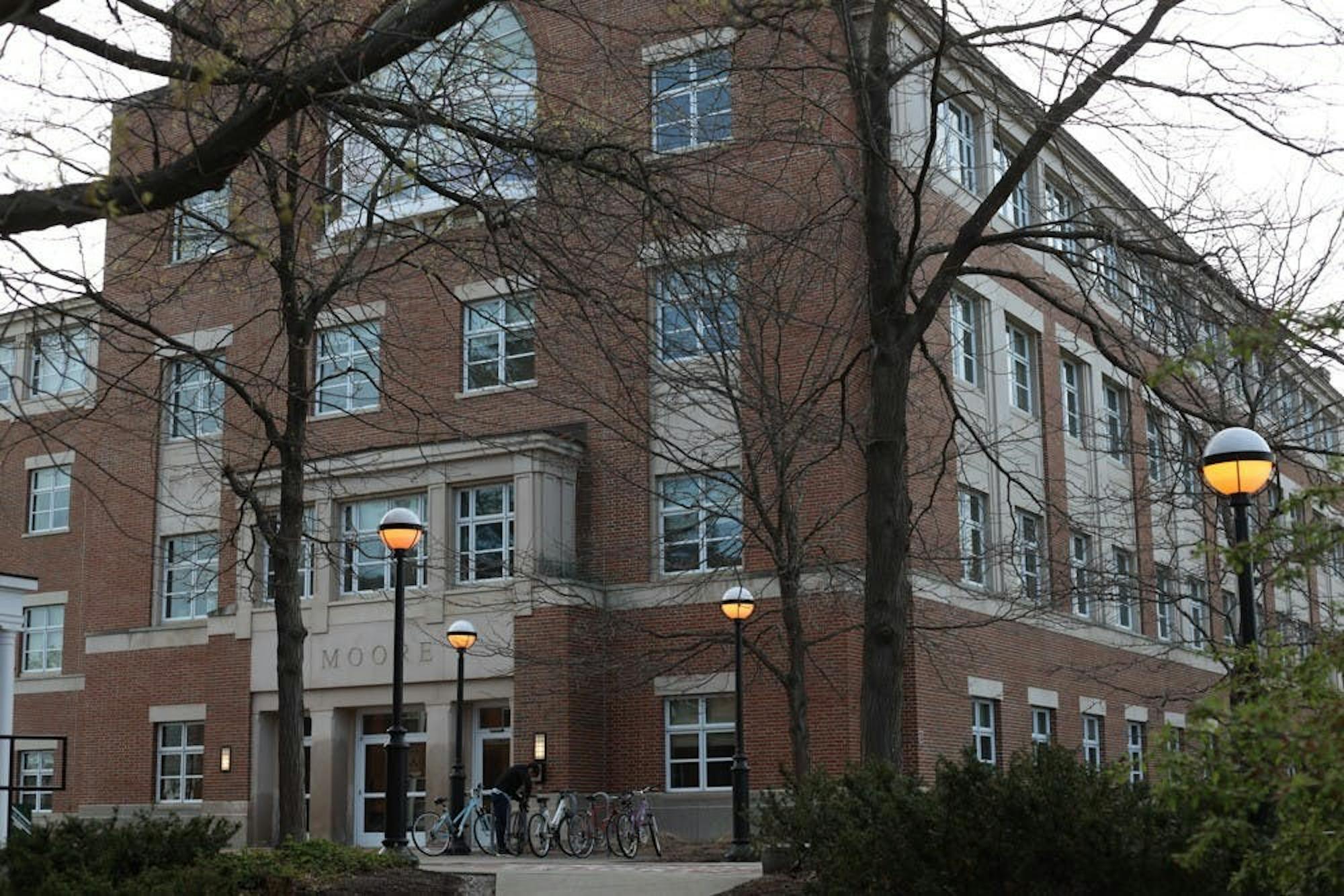On Monday evening, the Rockefeller Center for Public Policy hosted Beth Robinson ’86 for a discussion exploring misperceptions about judging and threats to an independent judiciary. Robinson is a judge for the Second Circuit of the U.S. Court of Appeals and the first openly LGBTQ+ woman to serve on a circuit court.
The talk was titled “Courts, Myths, and the Foundation of Liberty” — though Robinson said if she could have renamed the event, she would have called it “You be the Judge.” The event was part of Dartmouth’s 2022 Law Day Celebration, which aims to teach the public how law and legal processes “protect our liberty, strive to achieve justice, and contribute to the freedoms that all Americans share,” according to the American Bar Association website.
Philosophy professor Susan Brison introduced Robinson, whose lecture was followed by a Q&A session moderated by public policy professor Herschel Nachlis. In her introduction, Brison noted that after graduating from Dartmouth, Robinson attended the University of Chicago Law School. During Robinson’s 18 years of law practice in Vermont, she served as an attorney in the landmark 1999 case Baker v. Vermont, which granted same-sex couples the same benefits and protections as heterosexual couples under Vermont law and paved the way for same-sex civil unions in the state.
“The fact that [Robinson] brought this case to the Vermont Supreme Court that led to Vermont being the first state in the Union that had civil unions was remarkable,” Brison said.
Earlier on Monday, Robinson spoke with Nachlis’s class PBPL 28, “Laws, Courts and Judges” and went to lunch with another group of students interested in law.
“It was a lot of amazing advice that I hope that [students] will remember and that will resonate with them,” Nachlis said.
Dara Casey ’25 attended the event for her PBPL 28 class and noted that it’s “very rare that you get the opportunity to hear a circuit court judge talk, especially one [who] went to Dartmouth.”
Throughout the event, Robinson asked the audience to judge specific cases by a show of hands. Robinson played a role in all of the cases she presented, either as a lawyer or as a judge later in her career.
“I wanted to pick cases that could illustrate a point, but that were also very accessible,” Robinson said afterward in an interview with The Dartmouth.
Onecase Robinson shared was Mary Morgan v. Zane Kroupa, which involved rightful ownership of a dog. Robinson explained that Kroupa’s dog, named Boy, had run away, leading Kroupa to search for his dog around town. Meanwhile, Morgan found Boy and made attempts to contact the dog’s owner. After 14 months went by and no owner had claimed Boy, Morgan took Boy into her home and renamed him Max. Eventually, the case of the dog’s rightful owner came to the Vermont Supreme Court, which ruled that Morgan could keep the dog after making “good efforts” to locate the true owner.
According to Robinson, at the time, Vermont common law recognized domesticated animals as property. Working as a lawyer on the case, Robinson argued that the common law should be “evolved” not to recognize companion animals as property. Robinson also said that this case became “integral” to custody disputes over family pets in divorce and search and seizures involving animals.
Casey said that Robinson’s discussion helped to explain how judges arrive at trulings. Casey added that she learned “that the courts aren’t always thinking about politics or division when they make a decision.”
To conclude her lecture, Robinson made a “balls and strikes” analogy to explain the inner workings of the judicial system, an idea popularized by Supreme Court chief justice John Roberts.
“Judges, like umpires, show up for the game,” Robinson said. “They call the pitches as they come in and they're not committed to either team. They are there as judicators.”
During the Q&A section, Nachlis asked about Robinson’s various career transitions. Robinson said that initially, she had felt “lonely” transitioning from a trial court judge to an appellate judge since trial court judges spend more time with clients, while appellate judges spend more time alone reading and writing.
One audience member shared that she is a young gay woman who hopes to one day become a federal judge. She asked how Robinson deals with critics who question her neutrality as a judge due to her sexual orientation, Robinson answered that actions speak louder than words and to let one’s track record speak for itself.
“I've been so impressed by the students I've met today and the quality of their questions,” Robinson said. “I'm feeling inspired about the leaders of tomorrow, based on what I've seen today.”




